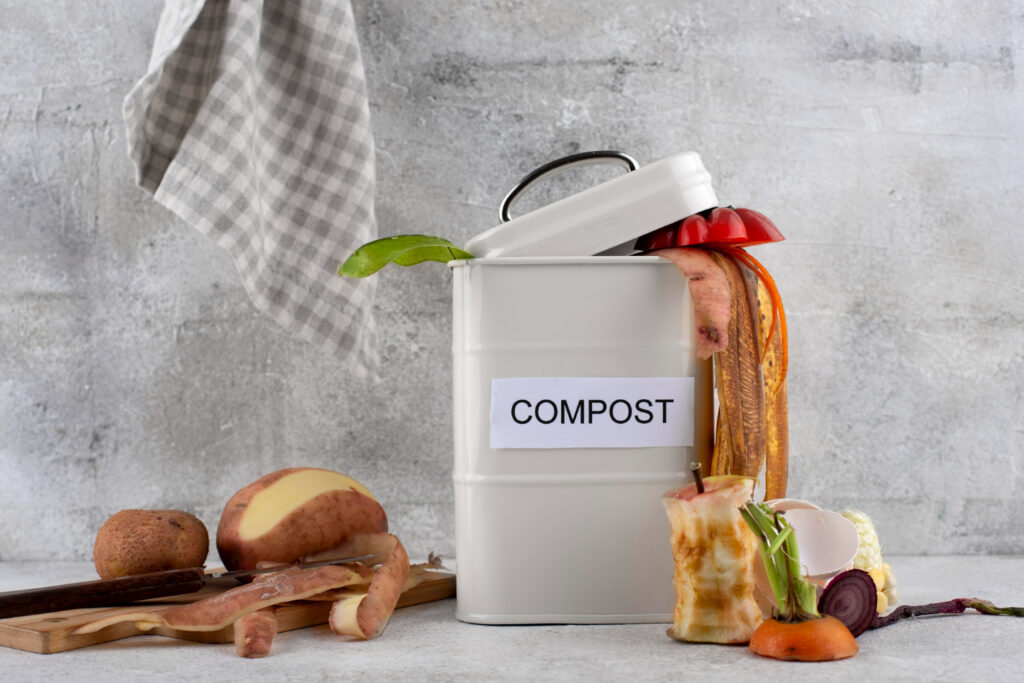Introduction: Uncovering the Alchemy of Composting
In the alchemical realm of gardening wherein waste is transformed into wealth and decay produces fertility, composting is an ancient practice that is adored by gardeners due to its transformational power. Making kitchen scraps into gold for the garden Composting isn’t just an eco-friendly method to handle organic waste, but is also a way to enrich soil, nurture plants, and create abundance in the garden. In this thorough tutorial on composting, we’ll dig into the science and art of harnessing the power of decomposition and creating an abundant and nutritious compost to the benefit of your garden.

Understanding the basics of composting
In essence, composting involves reducing organic matter into a rich and crumbly material known as compost. The natural process of decomposition takes place through the actions of microorganisms, bacteria as well as fungi, and tiny organisms that thrive in a balanced compost pile. If you provide the proper conditions for oxygen, moisture as well as temperature, gardening enthusiasts can speed up the process of composting and create high-quality compost for their gardens.
The Construction of Your Compost Bin Pile
The first step to composting is to create a suitable environment for organic waste to break down. Compost piles are available in a variety of shapes and sizes that range from basic DIY structures made of wire mesh or pallets, to elaborate tumblers and spinning bins. Select a composting method that will work for your budget, space, and garden goals, making sure you have adequate drainage, aeration, and insulation to aid in the decomposition process.
What is compostable and what to do?
Composting is an incredibly versatile process that can be used to handle an array of organic materials, such as yard waste, kitchen scraps as well as some paper products. The best compost ingredients are fruit and vegetable waste eggs, coffee grounds, eggshells grass clippings, leaves, and even newspaper that has been shredded. However, certain things such as dairy, meat oils, food items, and pet waste must be avoided since they could be a magnet for pests and introduce pathogens into the compost pile.
How to maintain your compost pile?
The process of composting is a continuous one that requires maintenance to ensure the right conditions to decompose. Rotate or aerate the compost pile frequently to increase oxygen levels and accelerate the process. Keep the pile moist, but not dripping with water. Check the temperature of the compost pile, with a goal of temperatures of between 120degF and 160degF to encourage microbes’ activity in the compost pile and eliminate weed seeds as well as pathogens.
Utilizing Your Compost and Harvesting It
After a couple of weeks or even months of decomposition, Your compost will change into an opaque, crumbly substance with a sour, earthy scent which is a clear indication that it is ready to be used for gardening. The compost can be harvested by scooping it out of the top of the pile, and applying it liberally to gardens, containers, and planter holes to increase soil structure fertility, as well as moisture retention.
Conclusion: Cultivating the Circle of Life
Composting is more than an effective way of managing kitchen waste. It’s also an opportunity to celebrate living things’ cycle as well as life’s interconnected nature of everything. When composting kitchen scraps and various organic substances, gardening enthusiasts can stop the cycle of waste help reduce their footprint on the environment, and enhance the health and health of their gardens. Take your kitchen scraps build your compost pile and join the growing number of gardeners who turn ordinary garbage into incredible gardening gold using the art and science behind composting.
Enjoy composting, And may your yard prosper in the abundance of its design!
Checkout: Top Free Home Gardening Books